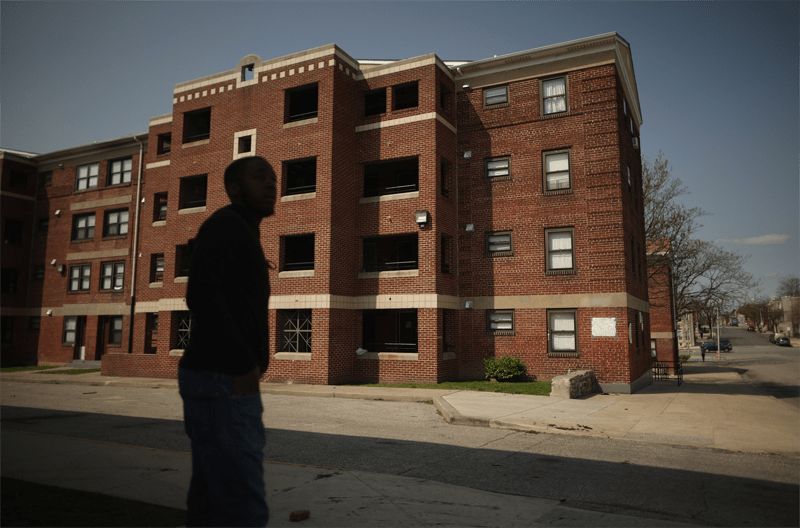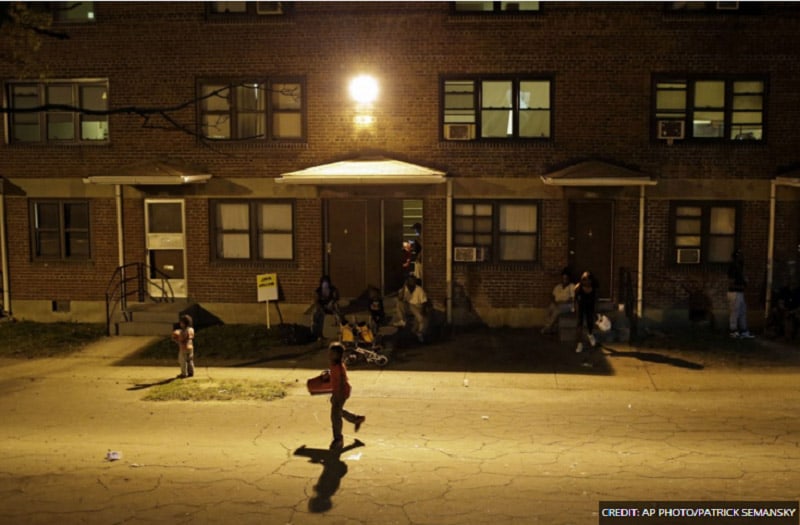
Class-Action Status Sought in Lawsuit Against Baltimore Housing Authority
BALTIMORE – Attorneys are seeking class-action status for a lawsuit against the Housing Authority of Baltimore City and some of its maintenance workers, arguing that many more tenants may have been victims of an alleged sex-for-repairs scheme.
The request, filed Friday in U.S. District Court, would allow more residents to join the lawsuit but shield their names and embarrassing encounters from the public, the lawyers said. If a judge approves the status and the allegations are proved, damages against the housing authority could increase.
“Many victims continue to suffer in circumstances that leave them afraid to come forward publicly in a lawsuit,” attorneys Cary J. Hansel and Annie B. Hirsch said in a statement to The Baltimore Sun.
They filed suit in September on behalf of tenants who allege that maintenance workers in three public housing developments demanded sexual favors as a condition for making repairs to their homes. Some tenants have been denied needed repair work for months as a result, the suit contends.
Along with the class-action request, nine more women joined the lawsuit Friday, bringing the total to 20. The lawsuit alleges sexual harassment or assault at Gilmor Homes, Westport and Govans Manor. The housing authority has said it will begin settlement talks with women named in the suit, who are seeking more than $10 million each.
Housing authority spokeswoman Tania Baker said Friday the agency “has not had a chance to fully review the additional allegations. Matters related to this lawsuit will be discussed at the scheduled mediation conference on December 14th.”
Investigators from the U.S. Department of Housing and Urban Development have been looking into the allegations, and the Baltimore state’s attorney’s office has said it is conducting its own criminal investigation.
The women named in the lawsuit allege assault and violations of their constitutional and fundamental rights, including the right to physical security. Class-action status would allow other victims to benefit from any relief granted by the court without having their names listed in public documents.
Hansel and Hirsch say they have heard from tenants who were mistreated but are reluctant to be named publicly. “Some cannot bear the pain of having their parents or daughters read about their plight. To protect their interests, we will ask the court to order the Housing Authority to create a fund which will allow payments of well-vetted claims without the intense spotlight focused on the named plaintiffs,” the lawyers said.
It’s common in such class actions that everyone who is injured is given a percentage of damages or a victims’ fund is established for anyone who can prove they were harmed.
City housing chief Paul T. Graziano has faced criticism over elimination of the housing authority’s inspector general and accusations that top housing officials have sought to retaliate against whistle-blowers. Some critics have called for his resignation. Mayor Stephanie Rawlings-Blake, who has strongly supported Graziano, declined to comment Friday.
Affidavits from the nine women who joined the suit Friday assert that they and witnesses filed more than 10 complaints with the housing authority in recent years describing the demands for sex, but no action was taken.
“During that time, an untold number of women continued to be needlessly subjected to sexual assaults and harassment across Baltimore,” Hansel and Hirsch wrote in the filing.
In one of the new cases, a 52-year-old woman who lives at Gilmor Homes says maintenance workers refused to make repairs ever since she reported a worker for making a sexual advance in 2013.
A housing official called her about the complaint, but no follow-up occurred, the suit says. Ever since, the suit says, workers have refused to make proper repairs.
“Sewage periodically leaks into the drinking and bathing water in my home and the water is dark, or black in color and reeks when coming from the sink or bathtub,” the woman’s affidavit states. “I have repeatedly complained about this, but other than giving me bleach, nothing has been done.”
Another affidavit describes a woman giving in to a worker’s advances to get a new refrigerator.
“I felt that I had no choice and gave into his demands and had sex with him on two occasions,” the woman wrote. “I felt nasty and I felt wronged.”
Source: Baltimore Sun Article, November 13th, 2015 (published)



